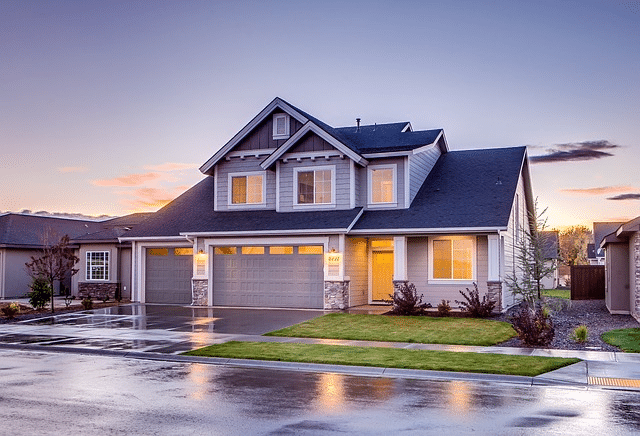Introduction
Installing new siding can completely transform the look and feel of your home’s exterior. But as an intricate, skill-intensive process, siding replacement is a project best left to seasoned professionals. Hiring reputable siding contractors offers distinct advantages for homeowners seeking to enhance or maintain their property’s curb appeal and value.
This comprehensive guide explores the key benefits of partnering with experienced siding companies. We’ll provide tips on selecting the ideal siding materials, evaluating contractor qualifications, understanding project timelines and costs, preparing your home, and maintaining new siding post-installation. Read on to learn why you’re better off letting the experts handle your next siding project.

Benefits of Professional Siding Installation
Upgrading your home’s siding requires technical proficiency to ensure the new siding is correctly installed and secure. Professional siding contractors bring specialized expertise, equipment, and best practices that typically exceed a DIY homeowner’s capabilities. Key advantages include:
- Efficiency and Speed: Siding crews have extensive experience installing quickly and efficiently. DIY projects often stretch out.
- Training and Expertise: Contractors understand optimal installation methods for different sidings and troubleshooting issues. DIY risks rookie mistakes.
- Access to Specialty Equipment: Tools like lifts and seamers allow contractors to safely access and precisely install siding. Most homeowners lack such equipment.
- Material Sourcing: Contractors have wholesale supplier connections to obtain siding materials at a discount.
- Warranties and Permits: Professional installation qualifies for manufacturers’ warranties. Contractors handle securing permits.
- Minimized Disruption: With sufficient crew sizes and coordination experience, contractors limit lifestyle disruptions throughout the installation process.
When performed correctly by professional siding contractors, siding installation provides lasting performance and protection to enhance your home.
Ensuring Quality Craftsmanship and Materials
Not all siding contractors share the same standards. Hiring siding contractors with proven quality craftsmanship ensures your project proceeds smoothly and yields lasting results. Indicators of excellence include:
- References: Established siding contractors can provide references vouching for their work. This validates their reputation.
- Reviews: Check independent reviews on Google, Yelp, and the Better Business Bureau. Look for consistently positive feedback.
- Certifications: Legitimate certifications in siding installation and manufacturing warranties demonstrate expertise.
- Portfolio: Examine before and after photos of previous projects to evaluate their skill level and end results.
- Local Reputation: Opt for siding contractors well-known in your area for quality and reliability developed from years of exceptional customer service throughout.
- Professionalism: From clear communication to punctuality, professional conduct reflects skill and experience.
- Attention to Detail: Siding contractors should evaluate your home thoroughly and make thoughtful recommendations tailored to your specific needs.
- High-Grade Materials: Quality materials that match or exceed the manufacturer’s warranty and specifications ensure lasting performance.
Taking these steps verifies you’re entrusting your home to accomplished professionals committed to excellence.
Range of Services Offered by Siding Contractors
A reputable siding company provides extensive services that comprehensively enhance your home’s exterior beyond just siding installation:
- Consultation on suitable siding options for your home style and climate, from trusted brands such as James Hardie and Alside
- Cedar shake, vinyl, aluminum, steel or fiber cement siding installation
- Repair or replacement of damaged boards or panels
- House wrapping to boost weather protection
- Flashing repair around windows, doors, and roofing
- Attic ventilation improvements to prevent moisture issues
- Fascia, soffit, and trim repairs to seamlessly integrate siding
- Painting or staining of siding to complement the color scheme
- Gutter cleaning, repairs, or replacements
- Decking, fencing, or porch repairs to unite home exterior
- Window and door replacements to sync style with siding
This breadth of services allows for a coordinated, aesthetically cohesive exterior makeover completed in an efficient single project. Property curb appeal, energy efficiency, and functionality are enhanced.
Home Evaluation and Consultation Process With Siding Contractors
Reputable siding contractors take a methodical approach to assessing your home prior to developing project recommendations. Typical steps include:
Examining current siding: The existing siding is inspected closely for damage, deterioration, gaps, and moisture issues to determine necessary repairs or full replacement needs.
Evaluating exterior elements: Fascia, trim, windows, doors, and structural issues are identified to address during the siding repair work.
Considering home style: Siding contractors can help evaluate which siding styles and colors would complement your home’s architectural characteristics.
Assessing environmental factors: Local climate, sun exposure, wind patterns, and rain totals help guide durable material recommendations.
Discussing homeowner needs: Through discussion, the contractor understands your aesthetic preferences, budget, lifestyle needs, and project goals to tailor suggestions.
Presenting recommendations: Siding contractors use information from the home assessment and discussions to recommend siding solutions that are specifically tailored to your property’s needs.
Evaluating Different Siding Materials and Options
Today’s siding landscape includes a diverse array of material options, each with its own pros, cons, and considerations:
- Wood or Cedar Shake: Offers natural beauty but requires extensive maintenance. Prone to rotting, cracking, and moisture damage over time.
- Vinyl: Budget-friendly, low maintenance, and mimics wood grain appearance but lacks structural strength for multistory homes.
- Fiber Cement: Combines strength and durability with low maintenance. More expensive but long-lasting.
- Brick or Stone: Timeless elegance but very costly, heavy, and labor-intensive installation. Appeal offsets challenges for some homeowners.
- Aluminum: Extremely durable and low maintenance but risks looking ‘tinny’ or industrial. Best for contemporary homes.
- Steel: Very impact-resistant and strong but susceptible to denting without special treatments. Long lifespan with minimal upkeep.
Professional guidance from helpful siding contracts can play a big role in choosing the optimal materials for your goals, budget, schedule, and property ensures the best long-term performance and value.
Financial Costs and Investment Value
Siding installation represents a significant upfront investment, but one that significantly enhances your home’s value. Some cost factors include:
- Siding materials selected: Premium options like stone and cedar shingles add cost, while vinyl and aluminum are budget-friendly.
- Home size: More exterior square footage equates to higher overall costs.
- Access complexity: Multi-story homes cost more than single story due to equipment needs.
- Scaffolding/equipment requirements: Lifts, cranes, or scaffolding to access high areas increase project costs.
- Sheathing repairs needed: Repairing or replacing damaged wall sheathing adds expenses.
- Additional repairs performed: Fixing fascia, trim, flashing and other issues together adds efficiency value.
- Contractor rates and labor: Negotiating pricing from multiple bids controls cost.
While not cheap, new siding yields excellent ROI by boosting home value significantly beyond installation costs. Lifting curb appeal also expedites sales and increases offer prices for sellers.
Finding Good Siding Contractors for Your Project
Choosing the ideal siding pro for your specific project maximizes results and value from your investment. Key traits to look for in choosing good siding contractors include:
Strong reputation: Seasoned, reputable firms known for quality workmanship make shortlists for a job well done. Seek word-of-mouth referrals.
Specialization: Look for siding contractors focused on vinyl siding rather than generalists. Expertise produces better outcomes.
Proper licensing and insurance: Valid local licensing and liability/worker’s compensation coverage protects you legally.
Solutions matching needs: Contractors should outline solutions tailored to your home’s unique specifications, not take a one-size-fits-all approach.
Quality of consultation: Responsive listening, insightful questions, and detailed recommendations signal competence.
Connection: Gut feelings matter. Choosing a contractor you communicate well with and trust eases the process.
Reasonable bids: Bids shouldn’t be the sole deciding factor. Optimal balance of price and expertise.
By proactively choosing the right siding pro for you, the project process is smoother and the end results are exemplary.
Signs of a Reputable Siding Company
Positive traits to look for when evaluating siding contractors:
- Local presence: Established local contractors are invested in meeting area homeowner’s needs with quality work to safeguard their reputation.
- Manufacturer certifications: Advanced training for specific brands demonstrates specialized capabilities to properly handle those products.
- Proper licensing: Required state and local licensing ensures oversight for consumer protection and accountability.
- Insurance policies: General liability and worker’s compensation coverage protects you from claims if accidents occur. Get documentation.
- Professional demeanor: From responsiveness to punctuality to helpful expertise, engaged customer service shows competence.
- Project portfolio: Photo examples of successful past projects validate expertise. Cross-reference reviews.
- Connection and trust: A sense of shared understanding and trust in the contractor’s guidance enables a smooth construction process.
- No-pressure sales: Beware high-pressure sales tactics. Reputable firms allow you time to evaluate recommendations.
- These signs distinguish experienced, credible siding companies that deliver results.
Warning Signs of an Unreliable Siding Contractor
Homeowners should also watch for these red flags:
- No company address: Contractors should have a documented local address and contact info, not just a phone number.
- No license number: Ask to see their active local contractor’s license and confirm its legitimacy.
- No insurance: Responsible siding firms carry liability and worker’s compensation insurance. Don’t risk legal and financial hazards.
- Vague bids: Quality contractors provide clearly outlined bids rather than vague verbal estimates.
- Requests large down payment: Do not provide more than 10-25% down, with progress payments as work stages complete.
- No contract: A formal contract with project scope, timelines, warranty, and payment terms is essential.
- Unwilling to provide referrals: Quality firms readily share contact info for past clients who can vouch for their work.
- Lack of familiarity with local requirements: Licensed, experienced local contractors understand applicable building codes and permit processes.
Heeding these warning signs helps customers avoid contractors prone to performance issues, delays, and inferior work quality.
Comparing Bids from Different Siding Contractors
When evaluating multiple contractor bids, considerations beyond just cost include:
- The thoroughness of the bids: Do they comprehensively address all necessary facets of the project based on inspecting your home?
- Materials specified: Do they recommend durable, high-grade siding products suited to your home style and climate conditions?
- Warranties included: Robust product and workmanship warranties provide peace of mind should defects arise.
- Itemization of costs: A detailed cost breakdown allows you to understand what factors are driving pricing.
- Timeframe to complete: Does the company anticipate finishing in a reasonable, acceptable time period?
- Contractor reputation: Strong word-of-mouth, reviews, and qualifications justify higher pricing.
- Value-added services: Some companies differentiate by offering gutter cleaning, attic ventilation improvements, or handyman repairs.
While cost certainly matters, you want the optimal balance of fair pricing and top-tier expertise. Analyze bid differences closely.


Comments are closed